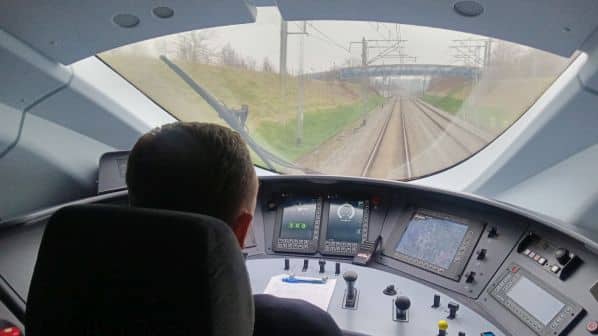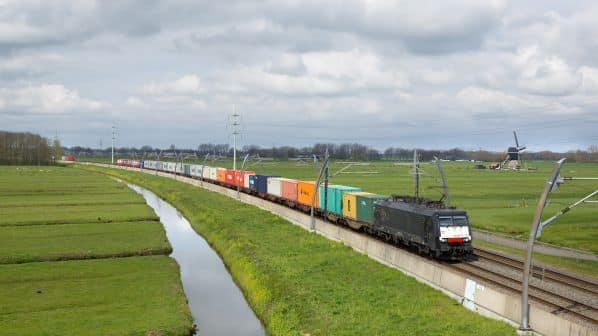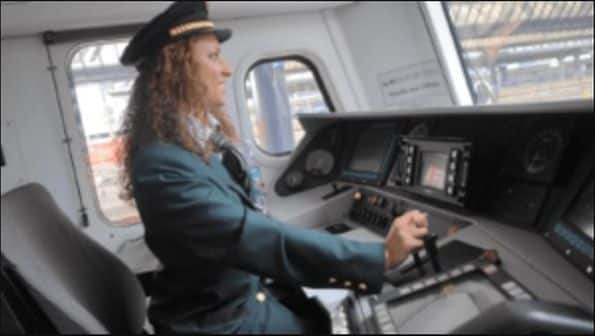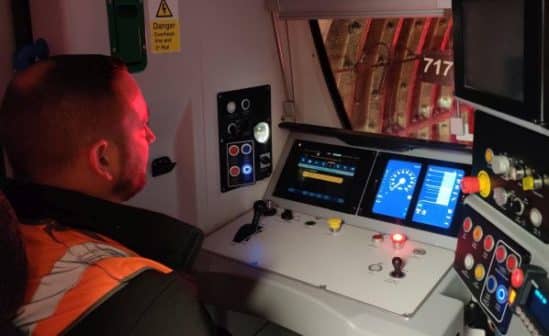THE Community of European Railway and Infrastructure Companies (CER) has reiterated its concerns that introducing a single operational language requirement in the forthcoming revision of the European Union (EU) Train Drivers Directive (TDD) would have no real added value while imposing significant costs and endangering safety.
In contrast, the Alliance of Passenger Rail New Entrants (AllRail) believes that it is “high time” that one of the major barriers to the creation of the Single European Railway Area is removed, arguing that less than 10% of railway staff would need to learn a single language such as English, “which will massively reduce the cost.”
In collaboration with Rail Forum Europe (RFE), CER held a policy debate on the revision of TDD on April 27, in the presence of Mr Nicolas Schmit, European commissioner for jobs and social rights, and Ms Livia Spera, secretary general of the European Transport Workers’ Federation (ETF).
The debate considered the revision of Directive 2007/59/EC on the certification of train drivers, now under consideration by the European Commission, with a particular focus on the communications regime and the issue of requiring a single operational language.
CER and ETF reiterated their position as set out in recommendations on TDD revision as agreed by the two parties in March. They believe that the introduction of a single or an additional common European language would constitute a massive disadvantage for the railway sector when competing with other modes.
They argue that as well as train drivers, such a change would affect “all professional job profiles” at operators and infrastructure managers, particularly those responsible for safety-related activities.
CER stresses the significant negative cost impact of the single language requirement, in particular for infrastructure managers where there would be no real added value for the business.
The organisation says that it remains open to defining “a target system for future communication,” but this must take into account the reality of day-to-day operations and be based on thorough hazard and cost:benefit analysis.
CER also points to the innovative language tools that are now available that would enable effective and safe communication, removing the need to train all railway staff in English.
AllRail believes that it is wrong to argue that the cost of moving to a single language would be very high. “Train drivers do not need to write poems or quote Shakespeare,” it says.
The alliance of new entrants also argues it is misleading to claim that all railway staff in the EU will have to learn the same language.
“In reality, it will only be the drivers and train control teams who actually deal with international trains,” AllRail says. There will accordingly be no need to train over 90% of staff in Europe who handle only domestic operations, “which will massively reduce the cost.”
AllRail believes the current system creates unnecessary expense, with staff changes at EU internal borders creating inefficiency and adding cost. It is convinced that more efficient and competitive passenger services will double or triple the size of the cross-border market, and “the new revenue will offset any purported expenses from having one single language for train drivers.”
“A single language would harmonise conditions between rail and other sectors, and achieve a level playing field,” says AllRail president, Dr Erich Forster.
“As long as this does not happen, then there will never really be a Single European Railway Area with one Europe and one railway.”
“English as an operational language is not an option as we cannot risk endangering safety and we must avoid an increase in costs without any real added value,” says CER executive director, Mr Alberto Mazzola.
“We are open to defining a future target system and should carefully consider deploying the available electronic communication solutions to boost interoperability.”




